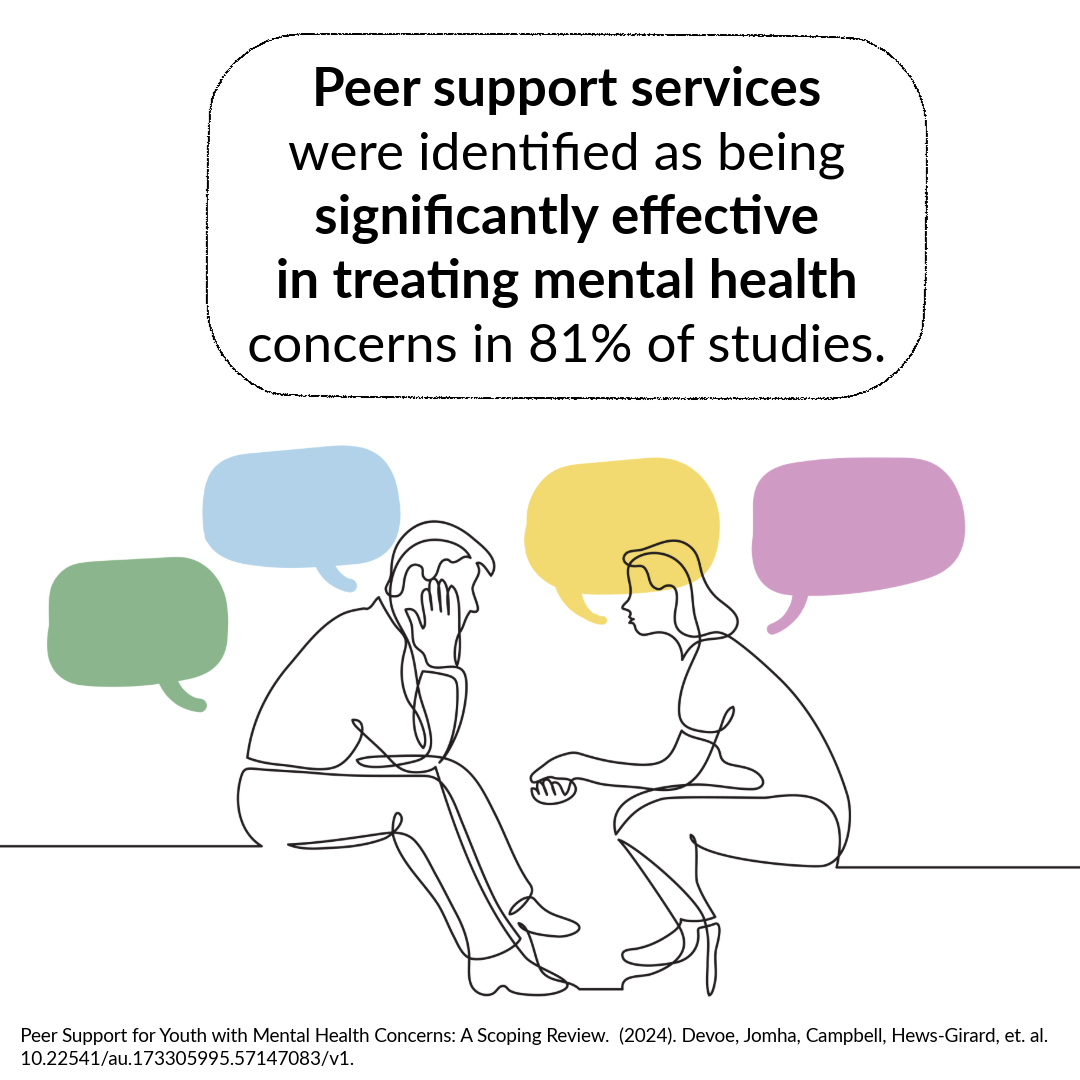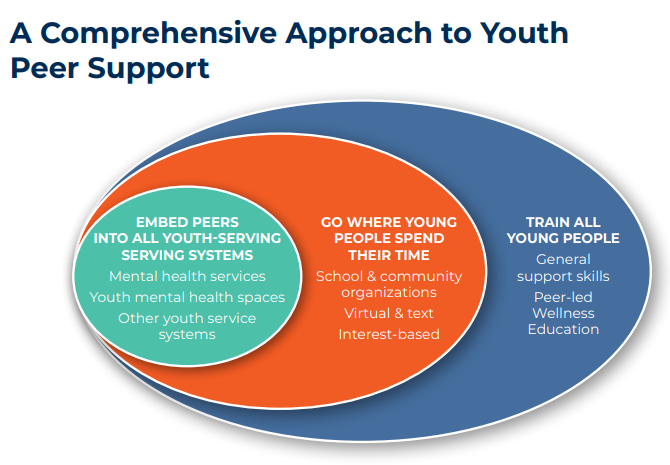 What is Peer Support?
What is Peer Support?
Peer support refers to individuals – peers – with a similar lived experience who can provide understanding, compassion, and hope to support people dealing with mental health problems and or substance use disorder. Whether the peer support is formal or informal, they are often a pivotal part of individual's healing and treatment path. Broadly recognized as a key component to a comprehensive mental health care system, peer support is an established practice in many local, state, national, and international settings. Peer support works by increasing hope, connection, treatment, recovery, empowerment, and social functioning.
Nationally, peer support is acknowledged as an evidence-based practice and a key component of an effective mental health system from federal agencies like Substance Abuse and Mental Health Services Administration (SAMHSA) to leading professional organizations, including Mental Health America (MHA) and the National Alliance on Mental Illness (NAMI).
Is Peer Support Effective?
Though the research community encourages further study of specific peer support structures and roles, there is widespread evidence supporting its effectiveness. The consensus is that peer support is effective at improving treatment outcomes; cost-effective by reducing expenditures in the health care and correctional systems; and vital for children who benefit from the positive impacts on families.

What's Happening In Wisconsin
Peer supporters work in all 50 states, and may have specialized training to serve parents/caregivers, young people, or individuals recovering from substance use. Wisconsin has formal certifications for Certified Peer Specialists and Certified Parent Peer Specialists. Other peer services in Wisconsin include Peer Recovery Centers and Peer-Run Respite.
Learn more about Wisconsin's peer services here.
Comprehensive Youth Peer Support
At this time, Wisconsin does not have a credential for Certified Youth Peer Specialists. Despite this, there are many ways to expand the impact of peer support for young people. Mental Health America has published multiple reports with guidance on how to expand peer support. Their model of Comprehensive Peer Support encourages expansion of peer support skills and staff in three specific sectors.

Wisconsin has over 300 schools that host peer-led wellness education programs!
If you have difficulty accessing our materials, or using our website, please let us know by emailing OCMH@wi.gov. We take digital accessibility seriously and welcome the opportunity to remove any barriers in accessing content.